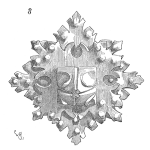
It all started two years ago. I had been in engineering, mostly in quality engineering, all my career, and at that point decided I would try and expand my analytical capabilities as an engineer. Not that I didn’t already have tools at my fingertips; I would use Excel, a lot. I was actually pretty good at it, having developed even custom applications with macros and all the bells and whistles. I had Minitab, which most engineers in my line of work also use. If it’s not Mintiab, then it is JMP or one of those statistical applications. They’re all fine.
It was just that I was looking to use a specific graphical technique, Youden Plots, and I just couldn’t find it anywhere. I had developed a mickey-mouse version in Excel just for my own use, which seemed to work, but I wasn’t blown away by it.
And then I stumbled upon R, and, admittedly, it was a completely random encounter. I had previously tried to learn Python for the sake of learning a programming language, and I ended up completely sucking at it at the time (not that it’s very different now, but I haven’t given up on Python just yet). Completely disillusioned with programming in general, I told myself to find something else to focus on; anything but learning programming. And then I found this guy on LinkedIn talking about how folks coming from a non-programming background usually find R to be very easy to learn, and how R is the real deal when it comes to data analysis. The guy was David Langer; he introduced me to R. So I’m sitting there like “Wow, maybe there is some truth to what he’s saying, have I been living under a rock to not have heard of R?”
So, I gave R a shot. And it changed my world. Well, I had to ease into it a little bit, but I ended picking it up and eventually running with it. I have along the way been able to use great resources that accelerated my learning (Matt Dancho‘s excellent Business Science courses being one of them), but at the end of the day it is R’s ease of use that really stands out to me.
And since first being exposed to R, I have been using it every day for my work and outside of work to work on engineering or non-engineering problems, I have built custom web applications for work and outside of work, developed the sherlock R package, and more importantly been able to get a lot of value out of knowing R.
Here’s my take on how R could be useful for engineers
Engineers who work on stuff in the physical world tend to do one or more of the following:
- Designing or developing stuff
- Building stuff
- Testing stuff
- Troubleshooting or diagnosing stuff
- Improving stuff
And while they do some or all of the above, they also tend to do some or all of the below:
- Data visualization
- Calculations
- Modeling, simulations
- Some, or maybe more than just some, statistics
- Data visualization (did I mention this already?)
My goal with this newsletter is to make engineers who design, develop, test, troubleshoot or improve stuff in the physical world, engineers like myself, aware of R and its many capabilities, for example those above. An added bonus is that if you already use Excel (chances are you do), learning R will not be that hard. And I want to help you by sharing the knowledge I have gained over the past two years and more specifically when it comes to using R for engineering.
Here’s what this newsletter is going to look like
In future editions of this newsletter, starting with the very next edition, I will be going over use cases in R a typical engineer might find useful for their work.
I will not “preach” R and try not to compare it to other tools or programming languages (although it might happen here and there).
The format will be a short, 5-10 minute weekly read with code snippets and a walkthrough of the use case or technique being showcased along with additional pointers.
I will try to pick topics so both complete beginners and those who already use R will find something useful for them.
If you’re interested, go ahead and sign up for this newsletter (you can also connect with me or follow me), and let’s go!
 Ask a question or send along a comment.
Please login to view and use the contact form.
Ask a question or send along a comment.
Please login to view and use the contact form.
Leave a Reply